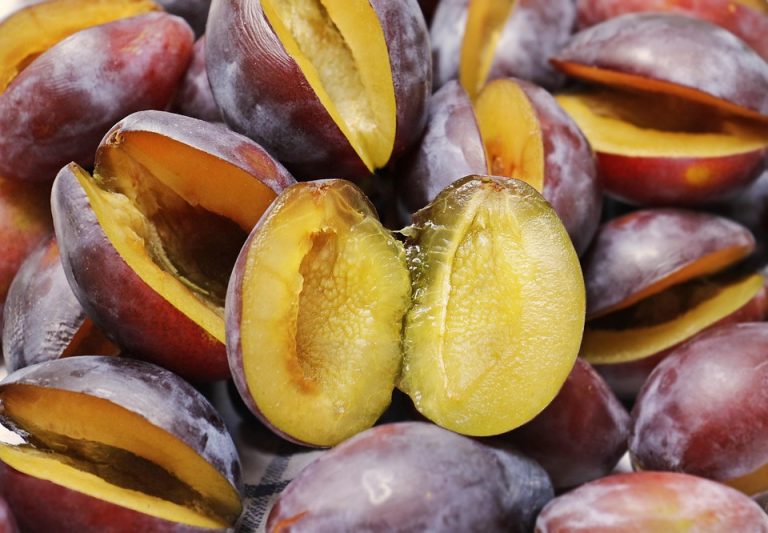Nutrient-dense vegetables are the superheroes of your plate. Packed with vitamins, minerals, and antioxidants, they can transform your health, boost your energy, and elevate your mood. If you’re looking to revitalize your diet and nourish your body, these ten vegetables are your go-to choices.
Contents
Why Nutrient-Dense Vegetables Matter
You might wonder, why should I care about these veggies? The answer is simple: they offer maximum health benefits for minimal calories. Incorporating nutrient-dense vegetables into your meals can help you maintain a healthy weight, support your immune system, and even decrease your risk of chronic diseases. It’s not just about filling your plate; it’s about making every bite count.
What Makes a Vegetable Nutrient-Dense?
Nutrient-dense vegetables are those that provide substantial amounts of vitamins, minerals, and other essential nutrients relative to their calorie content. Think of them as nature’s multivitamins. They’re often low in fat and high in fiber, making them ideal for anyone looking to improve their overall health.
The Top 10 Nutrient-Dense Vegetables
Let’s dive into the vibrant world of vegetables and explore the ten nutrient-dense options you should include in your diet today.
1. Kale
This leafy green is a powerhouse of nutrients. Kale is rich in vitamins A, C, and K, as well as antioxidants like quercetin and kaempferol.
- Benefits: Supports heart health, enhances vision, and boosts your immune system.
- How to Enjoy It: Toss it in salads, blend it into smoothies, or sauté with garlic for a delicious side dish.
2. Spinach
Packed with iron and vitamins, spinach is a favorite for a reason.
- Benefits: Supports muscle function, aids in blood circulation, and promotes healthy skin.
- How to Enjoy It: Add it to omelets, smoothies, or even pasta dishes for a nutrient boost.
3. Broccoli
Broccoli is a cruciferous vegetable loaded with fiber, vitamins C and K, and cancer-fighting compounds.
- Benefits: Supports digestive health and may reduce the risk of certain cancers.
- How to Enjoy It: Steam it, roast it, or toss it into stir-fries.
4. Brussels Sprouts
These little green gems are not just for holiday dinners anymore.
- Benefits: High in fiber, they promote gut health and are rich in vitamins C and K.
- How to Enjoy It: Roast them with olive oil and balsamic vinegar for a delightful side.
5. Sweet Potatoes
Not your average potato, sweet potatoes are a fantastic source of beta-carotene, fiber, and vitamins A and C.
- Benefits: Promotes healthy vision and boosts immunity.
- How to Enjoy It: Bake, mash, or cube them in salads for a sweet twist.
6. Beets
These vibrant root vegetables are not only gorgeous but incredibly nutritious.
- Benefits: They lower blood pressure, improve stamina, and support liver health.
- How to Enjoy It: Roast, pickle, or throw them raw into salads.
7. Carrots
Crunchy and sweet, carrots are a great source of beta-carotene and fiber.
- Benefits: Supports eye health and helps maintain healthy skin.
- How to Enjoy It: Snack on them raw, add them to soups, or roast for extra sweetness.
8. Cauliflower
This versatile vegetable is a fantastic low-carb alternative to grains and legumes.
- Benefits: High in fiber and B-vitamins, it supports heart health and aids digestion.
- How to Enjoy It: Use it as rice, mash it, or roast it with spices.
9. Bell Peppers
These colorful veggies are bursting with vitamins A and C, making them a nutritional powerhouse.
- Benefits: Boosts immunity and supports skin health.
- How to Enjoy It: Slice them for snacks, add them to salads, or stuff them for a hearty meal.
10. Zucchini
Zucchini is low in calories yet high in nutrients, making it an excellent addition to any meal.
- Benefits: Supports hydration and contains antioxidants that reduce inflammation.
- How to Enjoy It: Spiralize it for pasta, grill it, or add it to stir-fries.
How to Incorporate More Vegetables into Your Diet
Increasing your vegetable intake doesn’t have to be a chore. Here are some simple tips to make it easier:
- Start Your Day with Veggies: Add spinach or kale to your morning smoothie.
- Snack Smart: Keep cut-up veggies handy for quick snacks.
- Mix It Up: Experiment with new recipes to keep things exciting.
- Plan Ahead: Prep your meals in advance to ensure you include a variety of vegetables.
The Bottom Line
Nutrient-dense vegetables are essential for a balanced diet and optimal health. By incorporating these ten powerhouse veggies into your meals, you’ll not only nourish your body but also enhance your overall well-being. Don’t wait for a health scare to start prioritizing your nutrition. Make a conscious effort to fill your plate with these vibrant, nutrient-rich foods today.
Call to Action
Take charge of your health and start adding these nutrient-dense vegetables to your plate. Your body will thank you, and you might just discover a new favorite dish along the way!
FAQ
Q: What are the best ways to cook nutrient-dense vegetables?
A: Steaming, roasting, and sautéing are excellent methods that preserve nutrients while enhancing flavor.
Q: How can I make sure I’m getting enough vegetables daily?
A: Aim for half your plate to be filled with vegetables at each meal, and try to include a variety of colors to maximize nutrient intake.
Q: Can I eat these vegetables raw?
A: Absolutely! Many of these vegetables are delicious raw and retain their nutrients when uncooked.
Explore more about the benefits of vegetables at Harvard Health and CDC Nutrition for valuable insights. Your journey to better health starts with one vibrant plate at a time!
Get Your FREE Natural Health Guide!
Subscribe now and receive our exclusive ebook packed with natural health tips, practical wellness advice, and easy lifestyle changes, delivered straight to your inbox.





